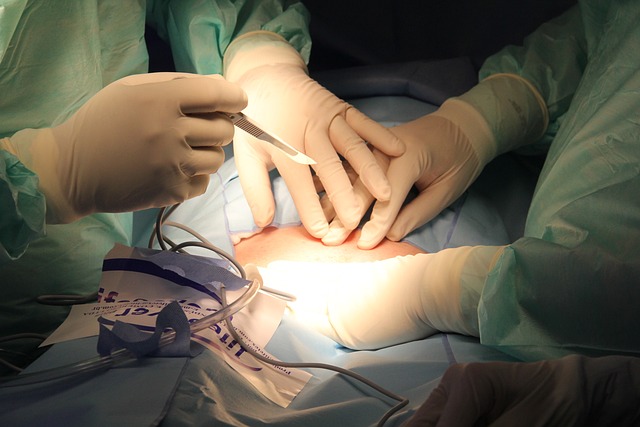Gastric Bypass Surgery Associated with Nonalcoholic Substance Use Disorder
Researchers have discovered a link between gastric bypass surgery and an increased risk of non-alcoholic substance use disorder, according to a new study published in Obesity , the flagship publication of The Obesity Society (TOS).
“The current study shows that non-alcoholic substance use disorder was 2.5 times more common after gastric bypass surgery compared to controls who received usual care for obesity, but the total number of patients with non-alcoholic substance use disorder Non-alcoholic substance use was low overall. “Healthcare professionals should consider the risk of non-alcoholic substance use disorder in the care of patients treated with gastric bypass surgery,” said Professor Per-Arne Svensson, PhD, Department of Clinical and Molecular Medicine, Institute of Medicine. , Sahlgrenska Academy, University of Gothenburg, Sweden and the Institute of Health and Care Sciences, Sahlgrenska Academy, University of Gothenburg. Svensson is the corresponding author of the study.
Experts note that a previously recognized side effect of bariatric surgery is an increased level of intoxication after alcohol consumption. Gastric bypass surgery has also been reported to be associated with a higher incidence of alcohol abuse. However, in recent years, studies have shown that substances other than alcohol have been overused after bariatric surgery.
In the current research, the Swedish Obese Subjects (SOS) study, enrolled 2,010 patients with obesity who underwent bariatric surgery: 265 patients for gastric bypass, 1,369 with vertical band gastroplasty, and 376 patients with gastric banding. A total of 2,037 matched control individuals received usual care for obesity. Participants who had non-alcoholic substance use disorders were identified using the International Statistical Classification of Diseases (ICD) from the Swedish National Patient Registry (NPR), which covers inpatient treatment but not primary care.
The study was carried out in 25 public surgical departments and 480 primary care centers in Sweden. Participants were between 37 and 60 years old and had a body mass index (BMI) of at least 34 kg/m 2 for men and 38 kg/m 2 for women. The study included patients from September 1987 to January 2001 with a follow-up period of almost 24 years .
The results revealed that only gastric bypass surgery was associated with a higher incidence of non-alcoholic substance use disorder compared to control participants. The most frequent diagnoses were other disorders related to psychoactive substances; disorders related to sedatives, hypnotics or anxiolytics and disorders related to opioids.
Furthermore, when groups that had undergone different surgical procedures were compared with each other, no statistical difference was detected in the incidence of non-alcoholic substance use disorder.
"It is important to recognize that the number of patients affected was relatively low, in the single digits," said Jihad Kudsi, MD, MBA, MSF, DABOM, FACS, FASMBS, bariatric surgeon and chair of surgery, Duly Health and Care, Oak Brook , Illinois. Kudsi was not associated with the investigation.
Kudsi added: “These significant findings further reinforce the recommendations of the American Society for Metabolic and Bariatric Surgery and highlight the critical role of bariatric behavioral health physicians in the comprehensive evaluation and care of patients before and after weight loss surgery. weight. It should be noted that a history of past substance abuse or dependence, which has completely subsided, should not be considered a contraindication to weight loss surgery.”
The study authors noted that further research is warranted to address this risk.
Discussion
The results show that gastric bypass surgery was associated with a higher incidence of non-alcoholic substance use disorder (SUD). We previously reported an association between alcohol abuse and gastric bypass surgery in the same cohort, and together, these results suggest that patients who have undergone gastric bypass surgery are at increased risk for addictive diseases.
There is currently no clear mechanistic explanation for the association between bariatric surgery and substance abuse. For the association between alcohol abuse and gastric bypass surgery, altered alcohol pharmacokinetics postoperatively is the most plausible mechanistic explanation. There are also altered pharmacokinetics of orally administered substances, including morphine, after gastric bypass has been described, but the literature on this topic is very limited. An increased risk of non-alcoholic SUD after gastric bypass surgery could also be related to the analgesia used during the bariatric procedure itself or the reoperation. However, the relatively late separation of the SUD incidence curves (after 6 to 8 years of follow-up) indicates that analgesia after the primary bariatric procedure is unlikely to contribute significantly to the increased incidence of SUD observed in this study. .
Other theories about why patients who undergo gastric bypass surgery develop SUD include the concept of "addiction transfer/behavioral substitution" or that gastric bypass surgery may change brain reward processing . Additional studies designed to identify mechanisms to explain the association between gastric bypass and SUD are needed.
Conclusion We conclude that patients treated with gastric bypass have an elevated risk of non-alcoholic SUD. Pre- and postoperative care of these patients should include assessment of risk for substance abuse that extends beyond alcohol abuse. Additionally, further studies specifically designed to address this risk are warranted, including all currently used surgical procedures. |
What is already known?
Alcohol use disorder is a well-described side effect of some bariatric procedures, but less is known about other substance abuse.
What does this study add?
The incidence of nonalcoholic substance use disorder increased after gastric bypass surgery compared with control individuals receiving usual obesity care.
How might these results change the direction of research or the focus of clinical practice?
The risk of non-alcoholic substance use disorder should be considered in the care of patients treated with gastric bypass surgery.
















